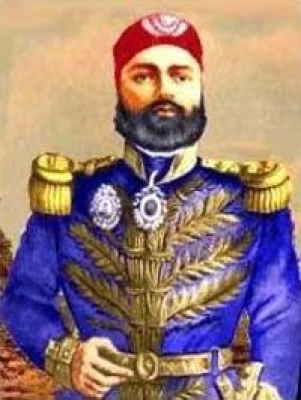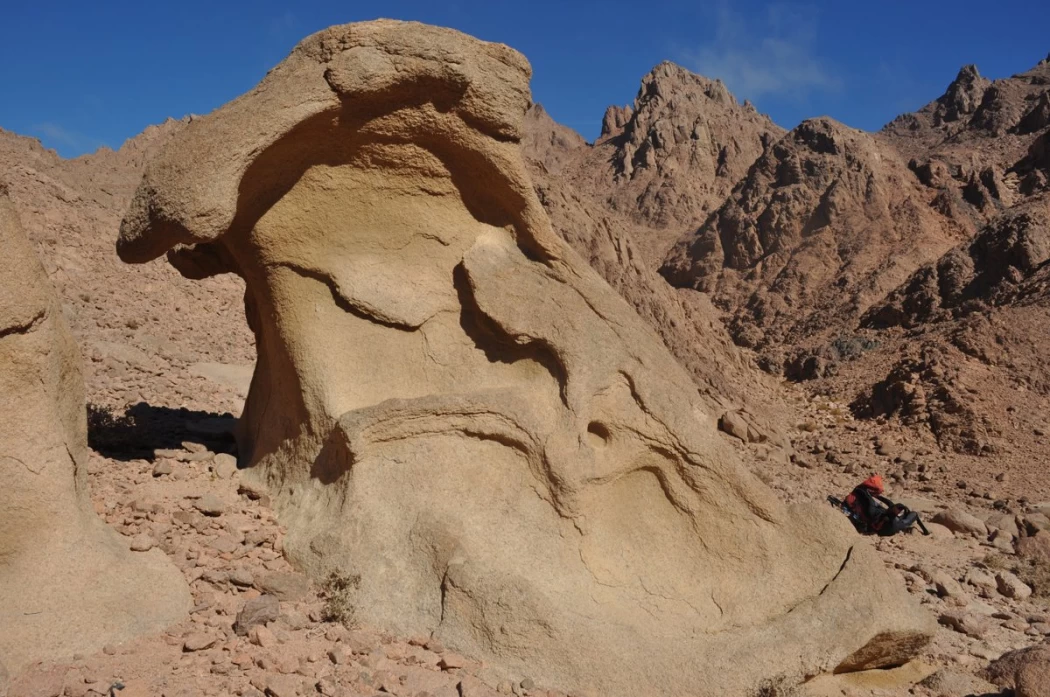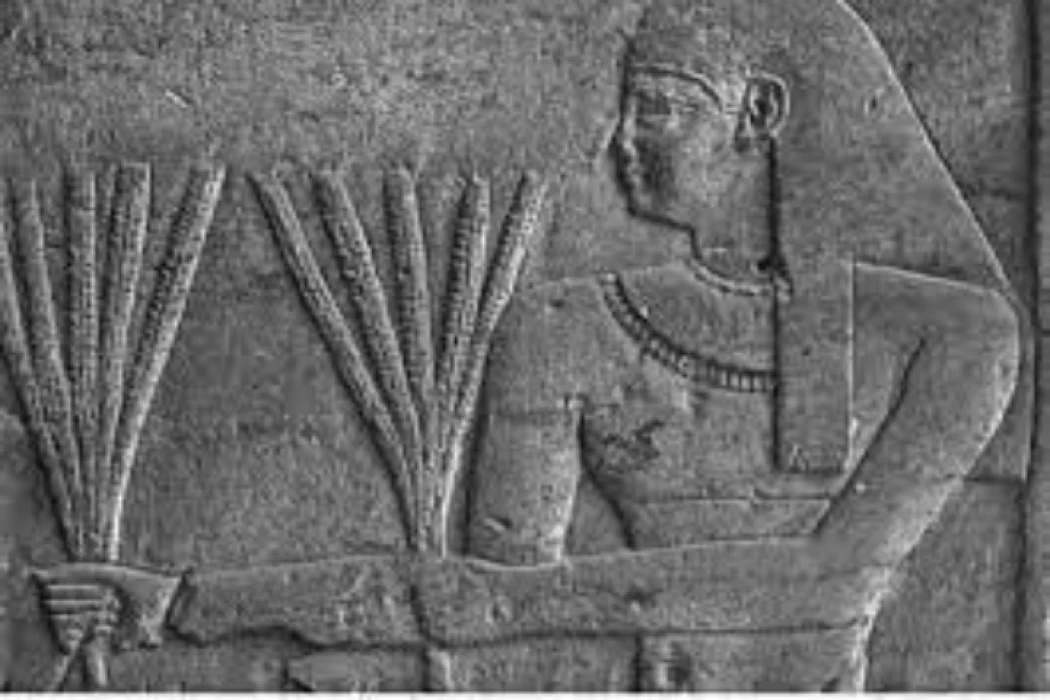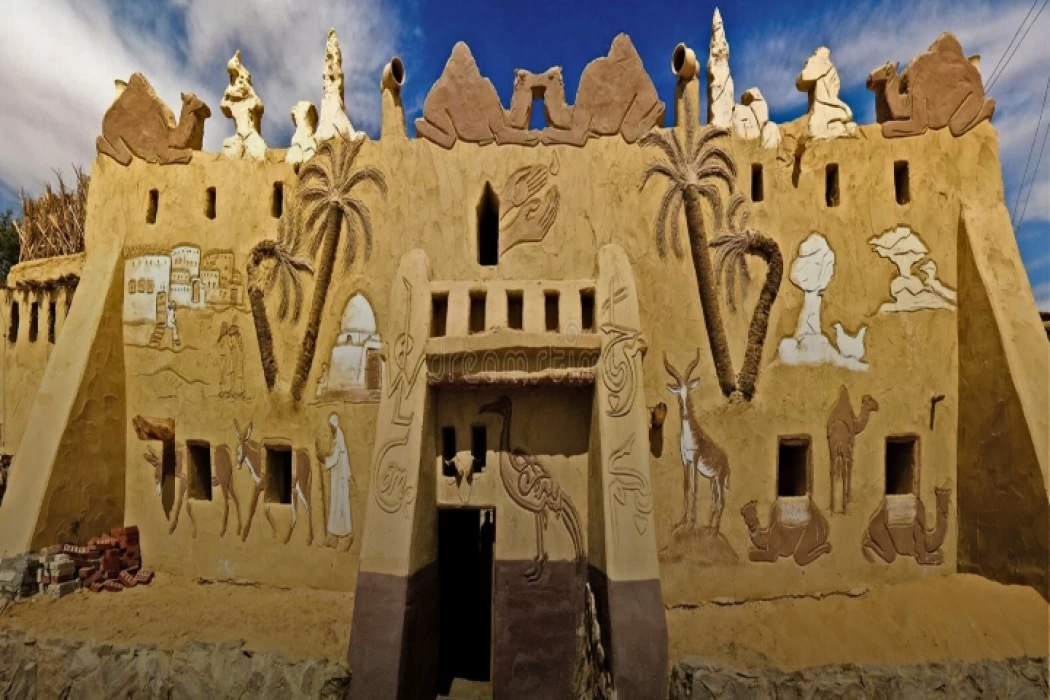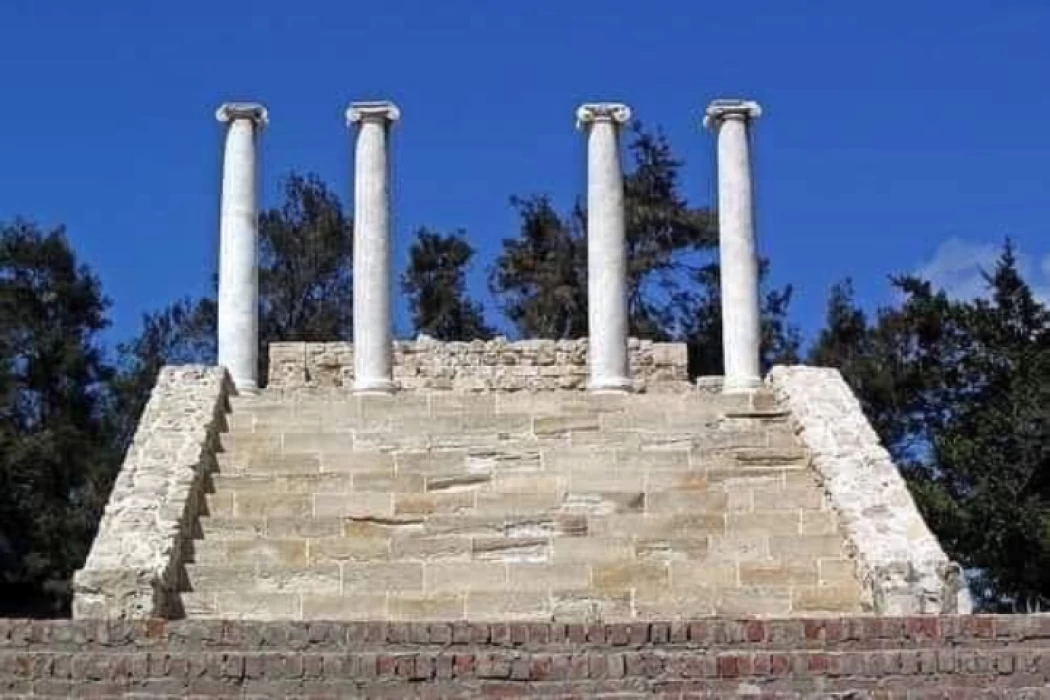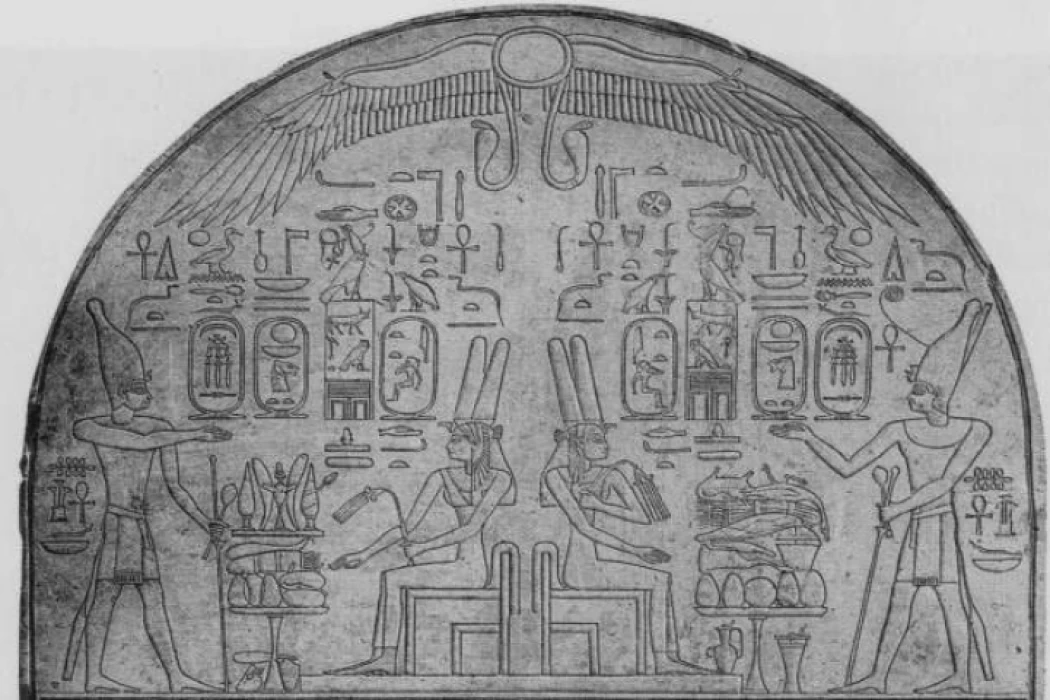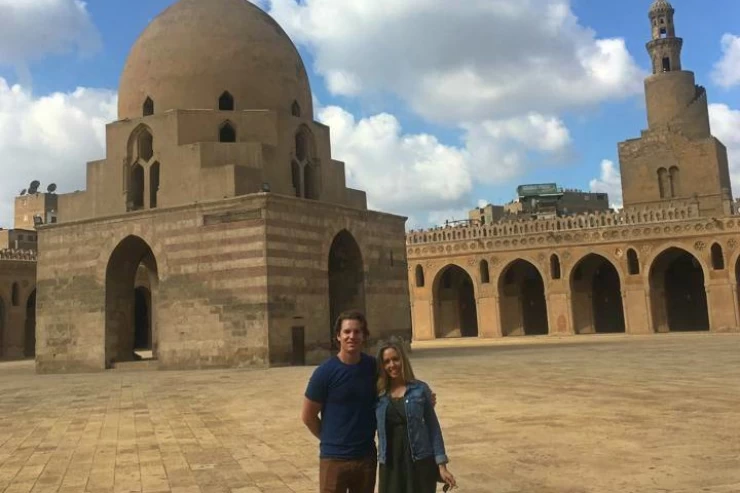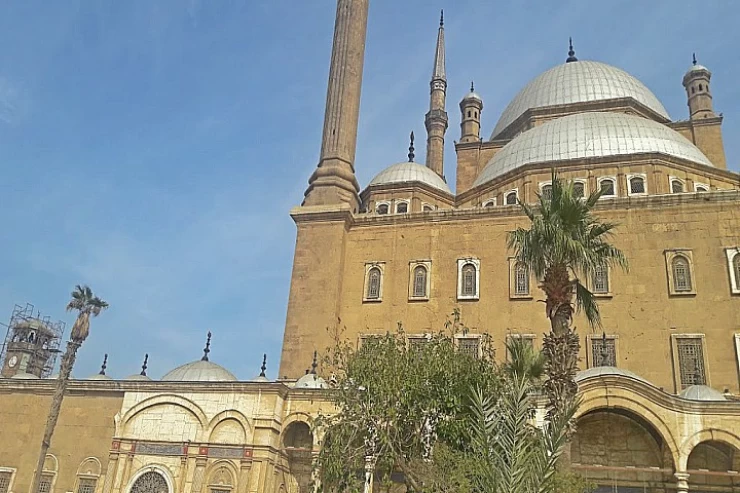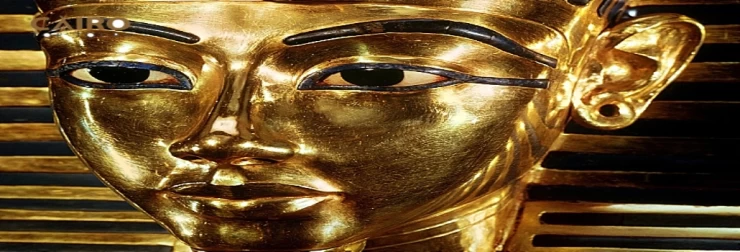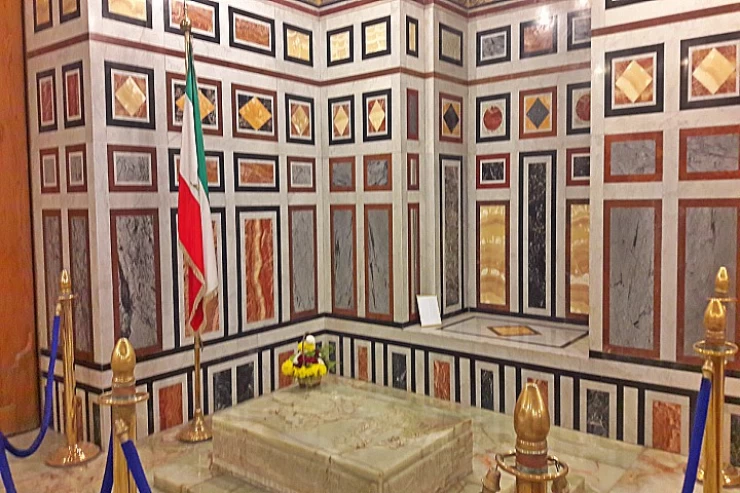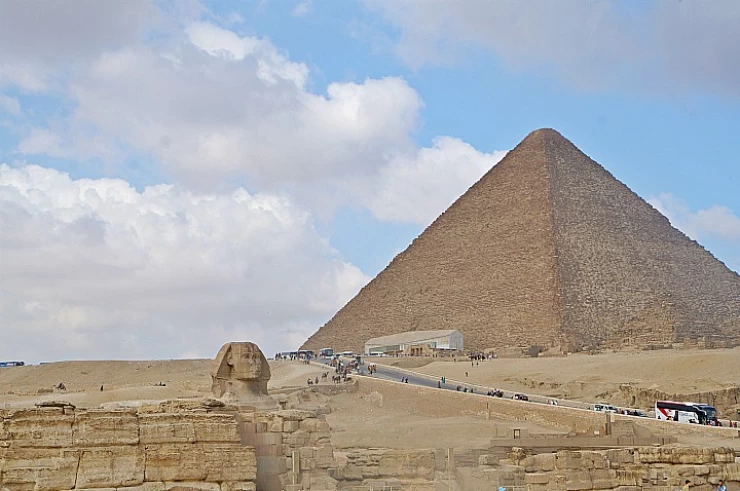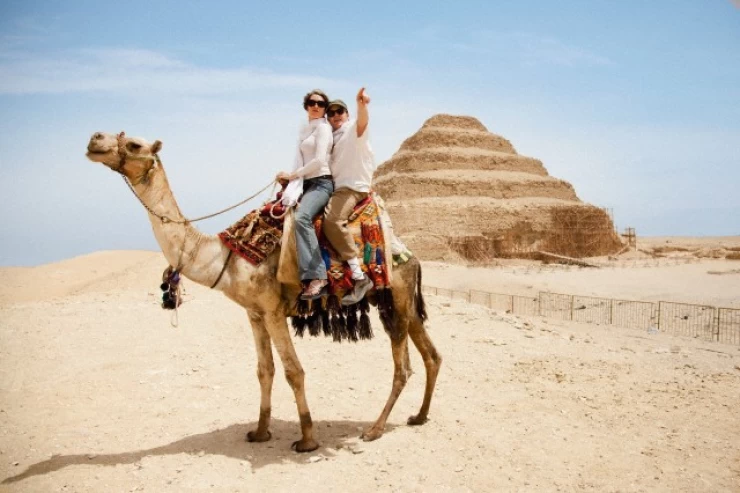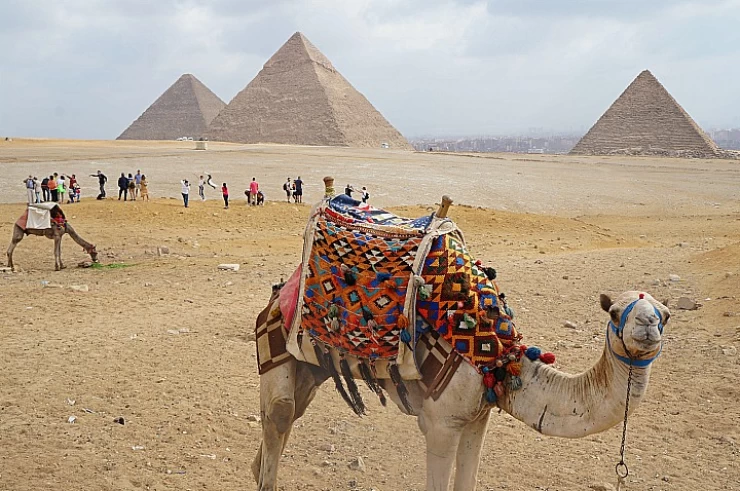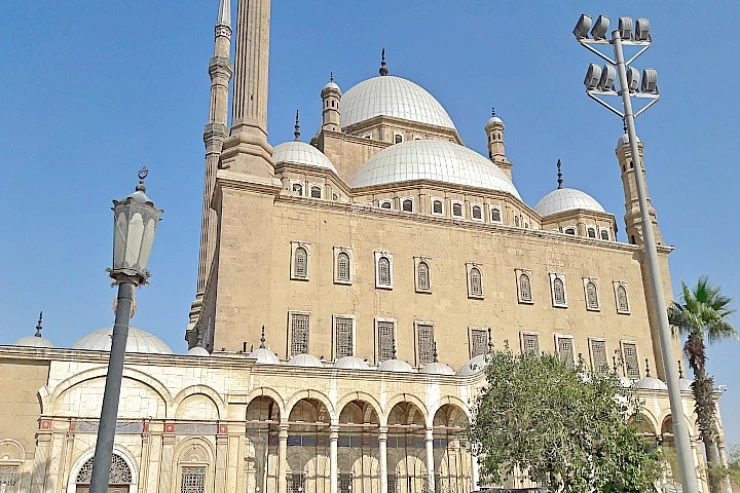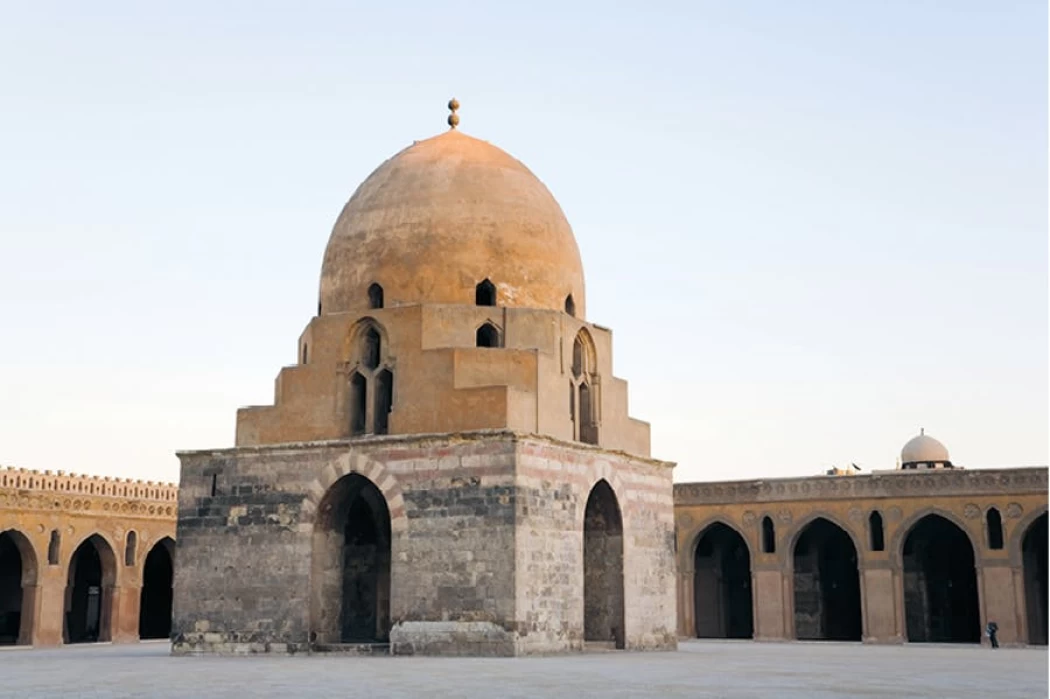
History of Ahmad Ibn Tulun
Abu al-Abbas Ahmad Ibn Tulun was the Emir of Egypt and the founder of the Tulunid state in Egypt and the Levant from the period (254 Ah/868-270 Ah/884), Ahmad Ibn Tulun was the governor of the Abbasid state over Egypt, then he gained independence in Egypt from the Abbasid Caliphate, so he was the first to gain independence in Egypt, he was also able to eliminate the movements opposing him, and expanded towards after the caliph Abu al-Abbas Ahmad Al-Mu'tamid entrusted him with putting down the revolts in the Levant.
Ibn Tulun carried out several works during his reign, including the establishment of the city of Al-Qata'a, which he took as the capital of his state, as well as built his mosque known as the mosque of Ahmad Ibn Tulun, he was known for his religiosity, good manners and his association with scholars, where he was from a young age characterized by sobriety, loyalty, memorization of the Quran and religious, his father was a Qajaq Turks.
Birth and upbringing
Ahmad Ibn Tulun was born in 835 AD, and his origins go back to the Turkish Taghzughuz tribe, specifically to a family that was residing in Bukhara. His father was called "Tulun", and the state founded by Ahmad was later attributed to him, Tulun was owned and brought to Noah Ibn Asad Al-Samani, a worker of Bukhara and Khorasan, who sent him a gift to caliph Al-Ma'mun. He was sent from the Turkic Mamluks in the year 200 AH, corresponding to the year 816 ad. The caliph Al-Ma'mun was very impressed with Tulun, who showed signs of nobility and sincerity, so he had him, his status increased, and he assigned him several jobs, which he succeeded in managing remarkably, he was given the head of the guard, and his title was Prince of Ulster, and Tulun remained for twenty years holding this important position. Tulun had many sons, including Ahmad, who is known as Abu al-Abbas, who was born on Ramadan 23, 220 AH, corresponding to September 20, 835 in Baghdad from a concubine named "Qasim" and said "Hashim", but Ibn Asaker told about some sheikhs of Egypt that Tulun was not his father, but adopted him; for his religion, his voice improved with the Quran, the appearance of his success, and maintenance from a young age, and that Tulun agreed with him that he sent him once in his need; so he went, and when he had one of Toulon's chances with some of the servants, and they were on an obscene basis, he took his need that he had ordered, and he returned to him quickly, and he did not mention to him anything of what he saw from the luck and the servant, so the luck imagined that Ahmed had told Toulon what he saw, so she came to Toulon and said: "Ahmed came to me now to the Do-It-Yourself place, and I thought about myself, and I went to her palace, and he fell into the same Toulon, he believed her, so he called Ahmed, wrote a book with him, and stamped it to some princes, and Ahmed did not face anything of what the maid said, and it was in the book that the hour of arrival of the bearer of this book to you, hit his neck, and sent his head quickly to me, so he went with the book from Toulon, and he did not know what was in it, and he somehow passed that moment, so I summoned him to her, and he said:" I'm sorry, "I am busy with this book; to deliver it to some princes," she said, " Come on, I have a need for you, and she wanted to investigate in the mind of King Tulun what she told him about, so she locked him up to write a book for her, and then she was inspired by Ahmed the book that Tulun ordered to deliver to that Prince, so he pushed him to her and?;"And he asked him, and he said: "It's telling me how I was made since I came out of me," he told him what had happened, and when she heard that moment that the head of the servant had brought him to Toulon, he fell into her hands, and she imagined that the King had achieved the situation, so she apologized to him, asking for forgiveness for what she had done with the servant, confessed the truth and acquitted Ahmed he was famous among his acquaintances for piety and goodness, and at the same time for severity, strength and strength, because he was raised militarily. It seems that there was an urgent need at that time for a young officer serving in the Tarsus gap, to have a good encounter with the enemy and a desire for jihad, and to have a piety that suits the pure religious atmosphere that prevailed in the city, given the unique strategic and military importance of this city located on the border between Asia Minor and the Levant, where the Muslim. Based on this, Ahmad Ibn Tulun went out to the Tarsus gap and spent his youth years away from the Turkish center in Iraq, took up science, Hadith, and literature about the leading Tarsus scholars, also married and had children, and aspired to participate in the Sufis that were invading Rome, and also got to know firsthand about the Levant and its military importance, and perhaps his first days in it opened his ambition to take it over with Egypt.
Ahmad Ibn Tulun took his first steps towards fame, after the death of his father in the year 240 AH, corresponding to the year 854, when he was twenty years old. The Abbasid Caliph al-Mutawakkil delegated to him the various military works that his father had, and soon he was allowed to seize the emirate of Thujur, Dimashq, and the Egyptian houses. As such, Ahmad Ibn Tulun entered the midst of the turbulent political life at that time in Iraq, he enjoyed the respect and trust of the Turks, and he also gained the trust and respect of the caliphate, his relationship with both the caliphs al-Mutawakkil and Al-musta'in was good, and his connection with the latter began during his return from Tarsus when he joined a commercial convoy coming from Byzantium carrying Roman fun and belongings to the Caliph, he saved them from Arab bandits who were exposed to them in the region of Edessa, so the Caliph kept him a favor and gave him a thousand dinars. Ahmad Ibn Tulun, unlike many of the commanders of the Turkish guard, showed his respect and appreciation to the Caliph if he entered or talked about him. When the Caliph was exiled to Wasit, as a result of his conflict with Al-Mu'tazz and the Turk, they allowed him to take Ahmad Ibn Tulun with him, so he was his companion in his detention, and there is no doubt that this choice and acceptance of the Turk as a companion of the Caliph, due to the trust he received from everyone. Ahmad Ibn Tulun proved that he was worthy of this trust, so he treated the caliph Al-Musta'in with kindness and refused a request to ugly, the mother of Al-Mu'tazz, to kill him in exchange for imitating Wasit, and his answer was:
-God Almighty does not see me kill his successor in the neck of me, I swear and I will never -
The Caliph surrendered intact to his enemies, realizing his inevitable fate. His attitude had a great impact on the souls of the Turks, so they magnified his religion and his mind, he grew up in their eyes, and they began to look forward to this young man to take over their leadership, as he was magnified in the eyes of the Baghdadis.
Establishment of the Tulunid state
When Al-Mu'tasim Al-Abbasi introduced the Turks to the nerve of the Abbasid state, and they held most of the major positions, the Abbasid States came to them, and the Turkish payback was one of the most prominent Turkish elements who emerged on the political stage following the conflict that ended with the death of Caliph Al-musta'in and the assumption of Al-Mu'tazz. This Turkish leader was at the forefront of the Turkish leaders who managed this conflict, and they shared actions and aspects among themselves. It seems that he was afraid to leave the capital of the Caliphate so as not to be isolated, and he chose to stay close to the center of power to participate in decision-making, Ahmad Ibn Tulun represented him in Egypt, and he preferred him over others because of his good biography and because of his kinship with him, he is his stepfather. Ahmad Ibn Tulun marched to Egypt accompanied by Ahmad ibn Muhammad al-Wasti and entered it on Wednesday, Ramadan 7, 254 AH, corresponding to September 15, 868 AD. The prevailing policy at that time was for more than one person to take power in Egypt to keep an eye on each other. The worker of the Kharaj was Ahmad ibn Muhammad ibn al-murder, who had a bad biography in Egyptian society because of his severity and cruelty, and he is one of the cunning people and demons of the book. Shuqair, the servant on the post, an ugly boy and the mother of Al-Mu'tazz, watched the actions of senior officials and the behavior of people and informed the caliphate about this, he always stepped between these multiple forces, and he was Bakr Ibn Qutayba on the judiciary, on Alexandria Ishaq Ibn dinar, and the Cyrenaica of Ahmed Ibn Isa Al-Saidi. As soon as Ahmad Ibn Tulun settled in Fustat, his interests collided with these forces, and his relationship with the mastermind's son, who tried to attract him with ten thousand dinars, worsened. Ibn al-murder realized that he was facing an ambitious man who might pose a danger to him, so he began to plot to get rid of him or remove him from Egypt, so he sent a report to the House of the caliphate in which he explained that Ahmed Ibn Tulun was a man who did not trust either the state of Egypt or even one of the parties and accused him of intending to become independent in Egypt.
Ahmad Ibn Tulun countered this conspiracy formulated against him by Ibn Al-Mudaber and attracted some merchants in Egypt and Iraq, so he used them to woo the leaders of the order in Baghdad by spending money, and he succeeded in this regard, as this policy enabled him to continue to rule Egypt despite the large number of informers and successive books from Ibn Al-Mudaber and Shaqir al-Hajib, as it was another support for him in addition to the support of some Turkish leaders dominating the capabilities of the caliphate such as paykpak and yarjokh. Ahmad Ibn Tulun seduced the vizier Al-Hasan ibn Mukhallad by also spending money, and this sent him the books that Ibn Al-Mudaber and Shaqir al-Hajib were sending against him. With this political method, Ibn Tulun revealed his enemies and got acquainted with the truth of their position on him, so he decided to get rid of them until the political arena was clear to him. Ahmad Ibn Tulun then turned to getting rid of the mastermind's son because of his danger to him and standing as a stumbling block in the face of his major projects in Egypt, so he wrote to caliph Al-Muhtadi asking him to dismiss him from the outskirts of Egypt and appoint Muhammad ibn Hilal in his place, one of his friends. Since Baikpak dominated the House of the caliphate, the Caliph agreed to his request. The political circumstances that occurred in Baghdad helped Ahmad Ibn Tulun to establish his feet in Egypt, it happened that baykbak was killed in the year 256 AH, corresponding to the year 870 AD, and the Turkish commander Yarjokh, who circumcised Ibn Tulun, wrote to him: "surrender yourself to yourself," which is a clear signal to hand over the whole of Egypt, but he excluded the abscess that remained in the hands of Ahmed Ibn the police were overwhelmed by the Fustat and takhshi bin yelbardh. When he arrived there in Ramadan in the year 257 AH, corresponding to June 871 ad, his worker Ishaq Ibn Dinar welcomed him, so he approved of it, and he also received a gift from Ahmad ibn Isa Al-Saidi, which thereby increased his status and increased the concern and confusion of the mastermind's son. Thus began a new stage in the history of Egypt. Yarjukh died in the year 259 AH, corresponding to the year 873 AD, the owner of the feudatory of Egypt, Ahmed Ibn Tulun ruled on his behalf and invited him to his pulpits after the Caliph, so the Caliph approved him, and thus became the legitimate ruler of Egypt by the caliphate directly, and this year is the year of the founding of the emirate of Tulun. In the year 263 AH, corresponding to the year 877 ad, Al-Mu'tamid's letter was sent to Ahmad Ibn Tulun asking him to send an abscess of Egypt, to which he replied: "I can't stand it and the abscess is in the hands of someone else," so it was not approved at that time, except that the abscess of Egypt imitated him, and the emirate of thughour al-Shamiya, due to the turmoil of its situation. Thus, he became the master of the entire Egyptian House and the general supervisor of all its military, administrative, judicial, and financial activities, and struck the Ahmadi dinar as a symbol of this Independence. The Tulunid state represents the first experiment of local governance in which a family or a state ruled independently of the central government of the Abbasid Caliphate, where several members of the Ibn Tulun family were punished until the tulunid state was ended by Muhammad ibn Sulayman the writer.
Ahmad Ibn Tulun was able to use Egypt's resources wisely, so he was able to establish a comprehensive renaissance in Egypt, represented by the following:
Architecture
Construction of sections
When Ibn Tulun saw Fustat and the army closing in on him and his soldiers, he thought about building a new capital and named it Al-Qata'a, so he built it influenced by the splendor of Samarra, where he grew up.
Ahmed bin Tulun chose for his city the area between Mount Yashkar and the foot of Mount Mokattam, where he made sure that the new city would be built on a high rise of land to stand out from the rest of the urban total in Egypt. after the founding of the city, Ahmed bin Tulun established his huge palace, his majestic University and a princely house next to his university. between them was a spacious square that was a playground for him and the army commanders, as well as hospitals and houses.
The city was divided into sections, each of which was named a piece, and each piece was named after the sect that inhabited it, the army commanders lived in their own piece, the heads of industries and merchants in another piece, and the owners of crafts in their own piece, and that's why the city was called the pieces, and the old pieces of the current Cairo neighborhoods are occupied by the neighborhoods of Sayyida Zeinab, the castle, the Red Trail and helmeya.
Ahmad Ibn Tulun Palace
Ahmad Ibn Tulun established his palace on the site of the current Castle Square, which has completely disappeared, and he began to build it (Sha'ban 256 Ah/ July 870) and it is said from its size that it had forty doors, the palace served as the nucleus of the city of Al-Qata'a, Ibn Tulun turned the plain located between the palace and the mountain into a large square where they were also named after two eyebrows with these names that were sitting in front of them, the teak door because it was made of teak wood, and the prayer door from which Ibn Tulun came out to pray and was on the street The great one was also known as Bab al-Saba.
Cairo is full of a few other tulunite monuments, such as the tulunite house located in the tannery area in ancient Egypt, and it was characterized by the presence of external staircases.
Al-Tanur mosque
Ahmad Ibn Tulun built another mosque on Mount yashkar known as the AL-Tanwar mosque, and historians mention that the AL-Tanwar mosque is the location of the Pharaoh's Tanwar, he was kindling for him on it, if they saw the fire, they knew to ride it, so they took him what he wanted, as well as if he rode from Ain Shams, it is said that the Pharaoh's Tanwar was still in this position until a commander from the commander of Ahmed Ibn Tulun came out to him and demolished it and dug under it, and it seems that he thought there was money buried under it but found nothing. Ahmad Ibn Tulun built a minaret for this mosque, in which fires were used at night to guide people.
Ahmad Ibn Tulun mosque
The mosque of Ahmed Ibn Tulun is one of the most famous mosques in Egypt, and it is the most famous work of Ahmed Ibn Tulun and about the novel that influenced him because of which Ibn Tulun decided to build the mosque, tells the book " Cairo: There is a dream of Ahmed Ibn Tulun, which may have been the reason for the construction of one of the most important mosques in Cairo, the mosque of Ahmed Ibn Tulun, where Ibn Tulun saw that Allah Almighty manifested himself to all the palaces surrounding the site of his university, and he did not manifest himself to the mosque, so the interpreters explained to him "ruins what is around the mosque, and the fire was a symbol of accepting the Eucharist in the past, and the Ahmad Ibn Tulun mosque is considered the undisputed Sheikh of the mosques of Cairo, as it is the oldest remaining mosque in its condition It was created by Prince Ahmed bin Tulun in the period between 263 Ah-265 Ah, Ahmed bin Tulun spent 120 thousand dinars in its construction on an area of six and a half acres, and his visitor feels great awe and reverence, and the minaret of the mosque with its unique appearance in Islamic architecture in Egypt, and this minaret consists of a square base that the cylindrical leg of the minaret is topped by two octagonal floors with a prominent balcony carried by muqarnas, and these two octagonal floors are of the A common architect in the Mamluk era. This mosque was built by a Christian engineer named SA'id Ibn Kateb Al-farghani, and Ahmad Ibn Tulun said to him: I want a mosque if Egypt burns, it remains and if it sinks, it remains, and indeed this happened when the Abbasid State invaded Egypt at the end of the reign of Musa Harun and SWA Al-Qata'a razed to the ground and only this mosque remains.
Economic sphere
Agriculture
Ahmed Ibn Tulun did his best to encourage agriculture and increase agricultural production, and Ahmed Ibn Tulun was interested in irrigation to the utmost extent that he resorted to forced labor to improve irrigation methods by clearing the Nile River, building canals, erecting bridges, repairing canals and canals that irrigate fields, repaired broken dams, protected the peasants from the injustice and arbitrariness of tax collectors, reduced the value of to the lowest level., Where he provided the peasants with the seeds and agricultural machinery they needed, provided that their prices would be recovered from them after harvesting the crop and selling it. Ahmad Ibn Tulun reformed The Nile scale in Al-Rawda, which was established by the governor of Egypt Osama bin Zaid Al-tanukhi in 96 Ah/ 715 to measure the rise of the Nile water level, and then renewed this scale on the days of Caliph Al-Ma'mun Al-Abbasi in 199 Ah/ 814, and then re-established at the time of Caliph al-Mutawakkil in 247 Ah/ 861 until Ahmed Ibn Tulun repaired it, and this scale still exists today on Al-Rawda island. Ahmad Ibn Tulun also built water aqueducts in the south-east of Al-Qata'a, and the water was flowing in its eyes to Al-Qata'a from a well hole at the bottom, and he was lifting water from the well to the aqueducts by a female bartender, and these aqueducts were built from the same bricks as the Tulun mosque. For this reason, it is believed that the engineer who built it was the same engineer who built the mosque, and the rest of these Arches remain today in the Basatin neighborhood of Cairo.
Industry
The industry flourished during the reign of Ahmed Ibn Tulun, and at the head of the industries that Egypt was famous for at that time was the textile industry, including the linen industry, which gained new markets, and was manufacturing various types of linen in Lower Egypt in the cities of Tenis, Damietta, Dabiq, Shata, demira, and others, and in Upper Egypt in the cities of Fayoum, bahnsa, and ikhmim. Egypt was also famous for the manufacture of woolen textiles, in addition to the gold-embroidered and pedestrian textiles produced by the city of Alexandria were known for their high quality.
Medicine
Bimaristan
Ibn Tulun established a Bimaristana in the year (259 Ah/ 872); to treat patients free of charge without discrimination between classes and religions, and made treatment in it free of charge, and attached a pharmacy to dispense medicines. if the patient enters the hospital, his clothes are removed and other clothes are provided to him, and the money with him is deposited with the secretary of the maristan, and the patient remains under treatment until he is cured. the sign of the patient's recovery was his ability to eat a whole loaf and a chicken, and then he was allowed to leave the hospital. Ibn Tulun was inspecting the hospital, following up on the treatment of doctors, and supervising patients. Bimaristan was fined sixty thousand dinars.
Ahmad Ibn Tulun led many revolutions during his reign, including:
Alawite revolts
The revolt of Baga the Younger: the first of these revolts was the revolt of Baga the Younger, Ahmed ibn Muhammad ibn Abdullah Tabataba, who left Iraq and landed with his followers at a place between Alexandria and Cyrenaica, the churches are told, in the first jamada in 255 Ah / 869, then headed with his group to Upper Egypt, Ahmed Ibn Tulun sent him an army led by Bahm Ibn al-Hussein, defeated him and brought his head to Fustat
The revolt of the son of the Sufi al-Alawi: his name is Ibrahim ibn Muhammad ibn Yahya ibn Abdullah ibn Muhammad ibn Umar ibn Ali ibn Abi Talib from the dynasty of Ali ibn Abi Talib, and he revolted in 253 Ah / 867 in Upper Egypt, and he was able to capture ISNA in the month of Dhu al-Hijjah in 255 Ah / October 868, so he looted it and killed all of its people. When his danger worsened, Ibn Tulun sent him an army led by azdad, and Ibn Sufi overcame him, his commander represented the most heinous representation, Ibn Tulun initiated sending another army led by Bahm Ibn al-Husayn, so he was able to overcome Ibn Sufi, who fled to the western desert and remained there for almost four years, and then returned in the year 258 Ah/ 871 to ashmunayn; to clash with another rebel in Aswan, Abd al-Rahman al-Omari and torment on the Red Sea and from there to Mecca
The revolt of Al-' - 'Umari: Ibn Tulun was worried about Al -' Umari's Activity(2), so he sent an army to him, but this army was defeated, and then Ibn Tulun chose safety with him, after al-' - 'Umari wrote to him that he was in a hundred thousand or more, and one of the advantages of Ibn Tulun's Destinies was that Al -' Umari did not stay long; he was killed by two boys from the tribe of mudar and carried his head to Ibn Tulun
The revolution of the people of the city of Cyrenaica
In 262 ah, the people of the city of Cyrenaica staged a revolution, and they expelled Ibn Tulun's workers it, so Ibn Tulun marched an army led by Pearl, who followed the policy of leniency with them at first, but they did not submit to him, so Pearl was forced to use violence with them, besieged them, stressed them until they had to ask for safety, opened the doors of their city to
Revolution of Abbas ibn Ahmad Ibn Tulun
Ahmad Ibn Tulun went out to the Levant in Sha'ban 264 ah, and succeeded his son Abbas over Egypt, and Ahmad ibn Muhammad al-Wasti joined him as his mastermind and minister, but the bad lining pointed to Abbas declaring disobedience to his father, and arresting the Wasti who was sent to Ibn Tulun informing him of what was happening, and then headed to Cyrenaica, and when Ibn Tulun returned to Egypt, he was able to arrest his son, and put him in prison until he died during the reign of his brother khamarwayh Ibn Ahmad Ibn Tulun, Ibn Tulun sent to his son.
From Ahmad Ibn Tulun, the ruler of the faithful, to the oppressor for himself, disobedient to his Lord, aware of his guilt, spoiler of his gain, ordinary for his development, ignorant of his destiny Salaam to every repentant responder who is close, before taking the great and the solutions of the late and regret, and I praise Allah, who has no God but recognized praise, for his beautiful affliction, and the great height, and I ask him the question of a sincere in his hope, diligent in his prayer, to pray for Muhammad Mustafa, his faithful Al-Murtaza, and his messenger Al-Mujtaba. But after that, the same as you, such as the cow raises the tide(4) with its horns, and the Ant will have its death in its wings, and you will know your Hubble(5), you ignorant fool, who was praised for his lack of kindness, and got carried away by the noise of processions behind him - any resource that perishes, by Allah's permission, has been supplied because Allah Almighty rebelled and displaced, he blessed and Almighty has struck you in his book, for example, ﴿and Allah struck, for example, a village that was safe and secures everywhere she disbelieved with the blessings of Allah, and Allah tasted her for the clothes of hunger and fear with what they were making , If we were bringing you closer to us, and attributing you to our homes, out of greed for your vicegerency, and amid ignorance, your confusion, and we did not see the sermon soften your liver, and the reminder does not evaluate you, this percentage had no welcome, nor to add you to us a place and a place, but we were with Abu'l-Abbas only unwillingly, and we promise you that you were a forgotten man, and you were not a spent thing, so look - and not look at you-at the shame of what you imitated, and the indignation of which you were exposed by US. And know that the scourge-God Willing-has darkened you, and the hated-God Willing-has surrounded you, and the soldiers-thank God-have come to you, like a torrent at night, hurting you with war and war, so we swear-and we hope that we will not be unjust and unjust-not to dissuade us from you, not to affect your Shana Shana, do not go the peak of a mountain and not enter the belly of a ravine only we have made you-by Allah and his power- In them we asked you, where I nationalized them, spending all the serious money in you, and despising all the great speeches because of you, so that you may continue from the taste of living what you could not, and pay what you were called, When Allah does not defend you, nor does he joke with us about your yard, and you know how much prosperity you have you look with unblinking eyes, and you hear with unblinking ears, and you know that you have been clinging to the ropes of Vanity, straining at the ends of things, out of the snags of which the student does not sleep. As for what we gave of your fate to us in your crowds and crowds, and those who entered into obedience to you, to repair our work and fight our enemies, with a command in which they showed gloating at us, it was only because of you, so Fix, You foolish boy, order yourself, before you repair our work, and be firm in your command before you use firmness for us, so Allah-and praise be to him - gave us your victory and your support, and we did not have to abound with you over your quarrels and disobedience, {and you were not taking the misguided by the shoulder} [cave: 51]. And may my poetry be against those who despise the soldiers and violate by mentioning the armies, and among those who ridicule you for their vain blood, money, and debts without you, without a livelihood for them, and no giving that you generate for them, I knew if you had discrimination, or you have a collection, How was your situation in the incident that was near Tripoli, and how your guardians and mercenaries let you down with you until you were defeated, so how if they are called to your victory by your prestige, politeness to you and fear of your authority, they will be attracted by it more than that from us, and their presence of much giving and giving with us, what they do not find with you, and they would rather let you down, and tend to us without you. If they were all with you, and based on your victory, we would hope that Allah would empower you and them, and make the circle of evil turn on you and on them, and make us out of his habit of victory and cherishing the matter over what he still favors us with his likes, and lengthen with his likes. What prompted me to defer to you, ease your stranglehold, and prolong your address for such a long period are only two things: most of them were due to contempt for your command and its inferiority, and lack of celebration and indifference to it, and I limited my punishment to what you created from staying to the far corners of the Maghreb, displaced from your home and country, unique from your family and your son. On the other hand, I knew that the cruelty called you to take sides where you sided with him, so I wanted to calm those who are separated from you and reassure you of your calmness, and I worked out that you are nostalgic for us, longing for our closeness, longing for the same womb and lineage, for in our companionship there is something that endears you to us, and in our fraternization there is nothing that returns you to us, and no listener has heard from us in space, nor filled with detraction from you, nor anger from you, nor a cup in you; you have to be careful and follow your hand, and hope that you will be the one who comes back on your own, and that is good for your guidance and luck. But now, with the fact that you have forced me to be upset about you, and you have imprisoned my messengers, who were influential for a long time before you, and you are using equivocation and deception in what is being managed for you, you are not in a position for maintenance, and are not qualified to maintain and preserve, but curse you for a condition, and the and the Angels and all people, and Allah does not accept you completely and justly, and he does not leave you a turnabout to return to him, and let you down, let down those who do not care about him, and I will not eat you, nor I will not surround you, nor save you. May Allah use your curse to plan every prayer, and pray against you in the time of Night, Day, tomorrow, and the future, and to write to Egypt, Ajnad al-Shamat, thujur, qansrin, the Capitals, Jazira, Hejaz, Mecca, and Medina books that are read on their pulpits in you by cursing you, innocence from you, and evidence of your contracts and separation, narrated by another from the first, and influenced by a bygone past, immortalized in the stomachs of the sheets, carried by the stirrups, and spoken in the horizons and you will follow her and your heels in shame, driving out the night and the day, and the darkness and the lights differed. Then you will know transgressor of the command of his father, the one who has mercy on him, the disobedient to his Lord - what crime you have committed against yourself, and what great deed you have committed and you have been spared, wishing that there was a catch in you(16), or in you a human favor, that you were not born, nor in Creation did you know, except to retreat from our obedience and hasten to before us God willing, May he be exalted.
Relations with neighboring countries
His relationship with the Abbasid Caliphate
Ahmad Ibn Tulun recognized the spiritual authority of the Abbasid Caliph as the caliph of all Muslims and continued to pray to him on the pulpits of mosques in Egypt and the Levant. Unlike many Turkish princes and commanders, he respected, appreciated, and revered the position of Caliph, based on his military-religious upbringing and loyalty to Islam. However, despite this, the relationship between the Tulunids and the Abbasids was closer to the Cold War as a result of the intrigues that the Abbasid politicians were waging against Ibn Tulun and after him his son Khumarawayh in the House of the caliphate. Perhaps the most dangerous person who confronted Ibn Tulun from the Abbasids was Prince Abu Ahmed Talha, the brother of the caliph Al-Mu'tamid, who controlled public affairs in the House of the caliphate, and led a reform movement intending to advance the central authority and strengthen its grip on its states, including Egypt, in addition to his keenness to remain with the Levant pure to him without a rival because of their benevolence and given their political and economic importance, so he seriously sought to eliminate the tulunid emirate, which separated from the central administration in Baghdad and independent of Egypt and began to look towards the Levant. For his part, Ahmed Ibn Tulun rose to defend his acquired rights in Egypt, confronting the greatest power in the Abbasid state, which was not the power of the Caliph, with whom he was linked by common ties and interests, but the power of the conciliator Talha, and the rivalry and conflict appeared clear between them. The origin of this dispute was that the Abbasid Caliphate in Baghdad was rippling with a great sedition that almost engulfed the Abbasids, namely the Zanj revolt of the Ahbash slaves who rebelled against their Turkish Princes controlling all matters of the caliphate. The Negroes prevailed in their battles with the Abbasids at first, but caliph Al-Mu'tamid mobilized all the resources of the state for the Zanj war and his brother Al-Muwaffaq Talha led the war against them, but Al-Muwaffaq Talha replaced the order without the caliph and became the Supreme Commander. Therefore, caliph Al-Mu'tamid concluded a secret agreement with Ahmad Ibn Tulun, according to which he moved to Egypt and transferred the center of the Abbasid Caliphate to it away from the tyranny of the conciliator and the revolutions of the Negroes, Alawites, and outsiders, but the details of the agreement fell into the hands of the conciliator, so he imprisoned his brother caliph and cut off contact with him. He also began scheming for Ahmad Ibn Tulun in Egypt and ordered him to curse him on the pulpits, and on one occasion accused the conciliator Ahmad Ibn Tulun of the lack of money sent to him, so Ibn Tulun sent him an answer to accusing him of the lack of money sent to him:
The book of the prince supported by Allah-and I understood it, and he was pleased with Allah- I have always done this and made him my Guardian, so I endured the task of bones, and heavy provisions, by attracting everyone described with courage, and calling everyone I called with singing and sufficiency, by expanding on them and reaching connections and collaborators for them, to maintain this state, to sacrifice it, and to resolve the ambitions of those who desire it, and those who deviate from it and from this way he was in the Lord, and his place in counseling, it was necessary for him to know his right, and to save from the greatness of his destiny, and from every case his good fortune and his status, so I worked against that from demanding to carry money once, and to dry up in 19. I am obligated to advise on a price, and my promise to the one who has summoned the obedience that the prince has summoned is to do so by giving, desiring, pleasing, and honoring, and not to charge and burden the one who obeys it with a hundred pounds and a weight. However, I do not know the reason that produces the cruelty, and signs it between me and the prince-supported by Allaah - nor then a transaction anticipating a quarrel or a dissonance occurs, because the work that I am doing for others, writing in his affairs to others, and my tradition is not by him or his mandate, he and Prince Ja'far the commissioner-supported by Allaah - have divided the works, and each of them has an oath the nation is innocent of selling him out, and in dissolving the power of taking him off, which the Prince treated me with-from trying to dismiss me once, and dropping another official, and what he comes and settles - Contrary to his condition, spoiling his covenant, and my guardians begged and pressed me to drop his name and remove his drawing, so I preferred to keep it if they did not affect it, and I used patience if it was not used with me, and I saw the possibility and the magnitude more like those with knowledge and understanding, and I was reduced to victory and victory, so I- I will not be forced to do what Allah does not know my hatred for him, and to make what I have prepared for the sewing of the state-from the expanding armies, the multiplying militaries, which have sacrificed(23) its men from wars, and the trials of engagement have been inflicted on them - an expense to be overruled, for we have in our space someone who considers that he is entitled to this they secured me for themselves-as well as to return me to their inclination, or to rise to their support- Their thorn intensified, and it was difficult for the Sultan to fight them, and the Emir knew that by removing one of them, he had outgrown him, and he dismissed every army that rose up to him, as he had no supporter except the Lviv of Basra and the bastards in general, so how could anyone find an impregnable corner, an obedient supporter, and what the Emir represented in the originality of his opinion God is sufficient for his command, and to resolve the matter of his gluttony, and to make us sew on the most beautiful habit we have, and peace.
Neither of them succeeded in eliminating the other, so they turned to improving the atmosphere between them and fixing what had gone wrong, so they dropped cursing and cursing from the pulpits, and the caliphate almost recognized the legitimacy of Ibn Tulun's rule had it not been for his death.
With the Byzantine Empire
The relationship between the Tulunids and the Byzantines has been characterized by hostility since Ahmed Ibn Tulun was the Emir of Thujur, the Byzantines aspired to regain control of that region of Anatolia, and expelled the Muslims from it, especially after the weakness in the body of the Abbasid state, the prestige of the caliphate declined and the military commanders took control of the reins. The Byzantines managed to take control of a few border fortresses and towns but did not advance further. Byzantium during the reign of Emperor Leo VI (273-299 Ah / 886-912 ad) did not have the strength to confront the Muslims in the East and West, so this emperor tried to get closer to the Armenian kingdom and ally with it to confront the Muslims on the Eastern Front, but the outbreak of the conflict between the Byzantines due to the problem of the emperor's marriages made the conflict between Muslims and Byzantines difficult and difficult. In the first fourteen years of Leo VI's reign, the Empire suffered numerous defeats in the East at the gates of Cilicia and in the West, where the victory of the Muslims led them to crawl along the coast and penetrate the hollow of Asia Minor.
Situations in his life
Ahmad Ibn Tulun and the fisherman
It is mentioned in the biography of Ahmad Ibn Tulun Ibn al-Dayya that one day he boarded his boat and passed the Nile shore with it, and he found a fisherman Sheikh with a robe of an impeccable creation, and with him a boy in such a state of nudity and he threw the net into the sea. Ahmad Ibn Tulun lamented to them, and said to Nasim the servant: "Nasim, pay this fisherman twenty dinars". Then Ibn Tulun turned back from the direction he was going and passed the fisherman's position (on the return trip), and he found him lying on the ground he had passed away and the boy was crying and shouting, Ibn Tulun thought that someone killed him and took the dinars from him, so he stood on him and asked the boy about his experience, and the boy said: "this man-and he pointed to the servant breeze-put something in my father's hand and went on, my father still turned him from his right to his North and his North to his right until he fell dead". Ibn Tulun said to his friend: "They searched the sheik, so they searched him and found the dinars with him, and Ibn Tulun wanted to give the dinars to the boy, and my father, and he said:" I am afraid that you will kill me as you Killed My Father. Ahmad Ibn Tulun said to those with him: "The truth is with him, wealth needs to be gradual, otherwise its owner will be killed".
Ahmad Ibn Tulun and his son Al-Abbas
As for Abdullah ibn al-Qasim, the writer of Al-Abbas ibn Ahmad Ibn Tulun, he said: he sent to Ahmad Ibn Tulun once after half of the night had passed, and I met him with a panicked fear, and the eyebrow entered my hands while I was following him until he led me into a dark house, and he said to me: Hail to the Emir, I surrendered, and Ibn Tulun said to me from inside the house while he was in the dark: I said: to think. He said, ' Why?' I said: because there is nothing in it that the party is interested in considering. He said: Well done! Go to my son Al-Abbas, and say to him: the prince tells you to go to Ali, and forbid him to eat something of food until he comes to me and eats with me. I said: hearing and obedience. And I went away, and I did what he ordered me, and I prevented him from eating something, and Abbas was impatient with hunger, so he tried to eat something easy before he went to his father, so I prevented him, so he rode up to him, sat in his hands, and Ibn Tulun deliberately prolonged, until he knew that Abbas had intensified his hunger and brought a table that he was full of that food, he ordered them to move the table and brought every good color of chicken, duck, Capricorn and lamb, so his father spread out in all of that and ate, and accepted putting his son in his hands from him, he could not eat to satisfy him, his father told him: I wanted to discipline you on this day with what I have tested you with.do not throw your energy on small things by making it easier for yourself to deal with them, and that will prevent you from doing so from the big ones, and do not be preoccupied with what is less valuable, so there will be no favor in you for what is more valuable.
His death
Ahmad Ibn Tulun died on 10 Dhu al-Qa'dah 270 AH, corresponding to May 10, 884, the cause of his death was that Bazmar the servant was able to seize the rule of Tartus belonging to Sultan Ibn Tulun, and he arrested Ibn Tulun's deputy in it, and Ibn Tulun disobeyed and showed him the dispute, so Ahmad Ibn Tulun gathered the soldiers and marched to him, and when his writer and messenger reached the country is on the site of Asaker Ibn Tulun, and people almost perished, so Ahmad left, angry with Hanafah, and was sent to bazmar: "I did not leave except for the fear that the sanctity of this hole would be breached and the enemy would covet it," so when he returned to Antioch, he ate buffalo milk, and more of it, and he was injured by it, (1) and the doctors were treating him, the medicine did not work, so he died. He was succeeded by his son khamarawayh obeyed the leaders and disobeyed his father's deputy in Damascus. He paid attention to the army and took special care of the "chosen" squad, therefore he was nicknamed the father of armies.
It was said about him
Ibn al-Athir praised him, saying: "he was a firm Intellectual, much known and charitable, religious, loved scholars and people of religion, and did a lot of righteous deeds and the interests of Muslims .»
Shams al-Din al-dhahabi said of him: "he was a brave hero, a majestic leader, a politician, a horse, praised, by the cunning of Kings.»
Criticism to him
Ibn Tulun was subjected to several criticisms, including his independence from the Abbasid Caliphate, and his frequent bloodshed, and Al-dhahabi said of him: "But he is mighty, a bloodsucker.", It is narrated that those who were killed by Ibn Tulun or died in his prison numbered eighteen thousand. Mustafa Sadiq Al-Rafi describes him in his book Inspired by the Pen by saying:" he had a hand with the Angels striking, and a hand with the Demons striking, "and his story is famous with Bannan the Porter who threw him to the lion, Ibn Qutayba al-dinuri narrates:" When your Sheikh Abu al-Hassan Bannan went to Ibn Tulun preaching to him, and finish him off from this abomination, the mind of the ruler rushed, so he ordered the one who had just thrown the sheikh to the lion. Abu Ali al-routhbari says: "The reason I entered Egypt was the story of Banan Al-Hamal, and that was because Ibn Tulun ordered a favor and ordered him to be thrown into the hands of seven, so he made the seven smell him and not harm him, and when he came out of my seven hands he was told: what was in your heart where he smelled you?" He said: 'I was thinking about the question of the seven and her saliva.»
Latest Articles
Admin
Regin of Abbas I of Egypt | Abbas Pasha I
Abbas has been often described as a mere voluptuary, but Nubar Pasha spoke of him as a true gentleman of the "old school". He was seen as reactionary, morose and taciturn, and spent nearly all his time in his palace. He undid, as far as lay in his power, the works of his grandfather, both good and bad.
Admin
Story of Gabal Shayeb Al Banat - Red Sea Mountain
Jabal shayb al-banat is one of the Red Sea Mountains in the eastern desert in Egypt, located to the west of the city of Hurghada at a latitude of 27 degrees north and a longitude of 33.5 degrees east of the Greenwich line approximately, this mountain is the highest mountain peak in the eastern desert with a height of up to 2185 meters, it is a prominent mass of igneous rocks
Admin
Neper God Of Grain
Neper was the deity of grains, particularly cereals that were important in Ancient Egypt, such as wheat and barley. It was stated that he foretold when the crops would grow, be harvested, and disappear.
Admin
Badr Museum in Farafra
The Badr Museum is located in a mud building, which is the common home found in this medieval part of Egypt. All of the artwork that was created by the artist is quite unique. His work almost always depicts life in the Farafra Oasis and he provides the work through both painting and sculpting.
Admin
The Black Head Temple
The Black Head Temple is a small temple dedicated to the worship of the goddess Isis and was discovered in 1936, by chance, in the Black Head area, which is now located within the Mandara area of the Montazah district in Alexandria. This temple was moved from its original place to the Latin Necropolis in 1994.
Admin
The Queen Tetisheri
Tetisheri was the mother of Seqenenre Tao, Queen Ahhotep I, and possibly Kamose. For sure, she was the mother of Satdjehuty/Satibu, as attested on the rishi coffin of the latter. At Abydos, her grandson King Ahmose I erected a Stela of Queen Tetisheri to announce the construction of a pyramid and a "house" for Tetisheri.
